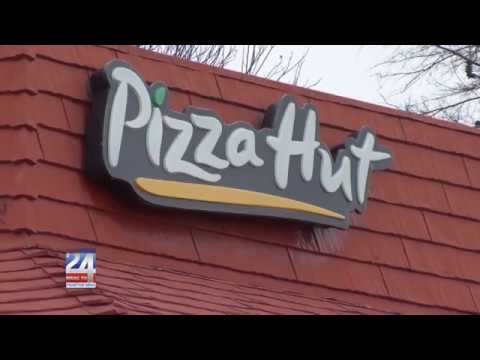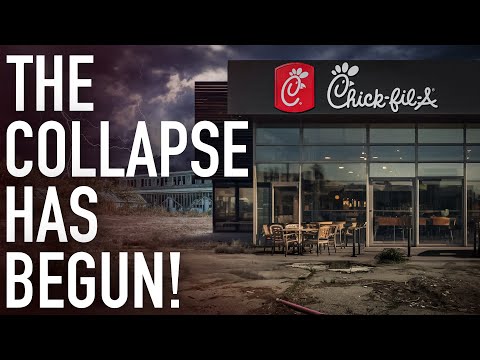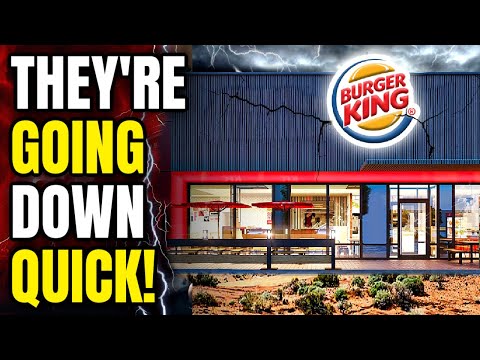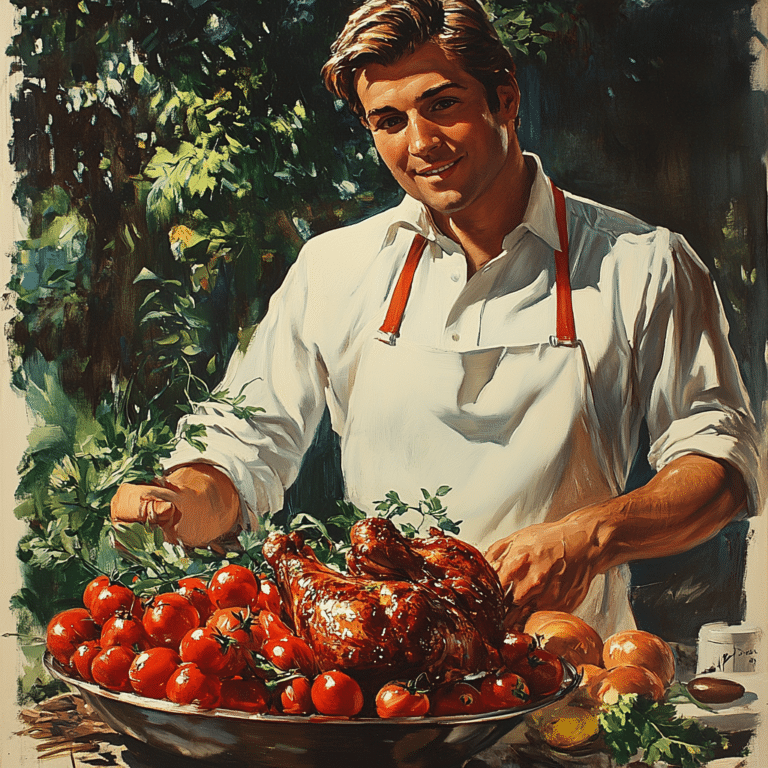## Insights on Fast Food Operator Chapter 11 Filing
Chapter 11 bankruptcy, often referred to as “reorganization bankruptcy,” allows companies on the brink of financial collapse the opportunity to restructure their debts while staying operational. For fast food operators, this maneuver is usually the last lifeline to remain afloat amidst rising operational costs and a shifting consumer landscape. Rubio’s Coastal Grill, a chain revered for its coastal-inspired cuisine, recently found itself navigating this storm. The chain filed for Chapter 11 in June 2024, signaling broader industry problems like skyrocketing operational costs and evolving consumer tastes.

Rubio’s Journey to Chapter 11: Key Events and Triggers
Economic Pressures and Market Competition
Over the past few years, Rubio’s has faced relentless economic pressure, exacerbated by rising commodity prices and labor costs. The onset of the pandemic only deepened these woes. While rivals such as Chipotle and Qdoba adapted by tailoring their business models to the new norm, Rubio’s struggled to maintain its footing. Declining profits and a rising debt load became hallmarks of the chain’s unsustainable financial trajectory. It can’t be understated how critical price management is in the fast food industry. With operating costs climbing, many operators, like the famous Harris Crab house, have to innovate to stay relevant.
Consumer Preferences and Market Trends
As the fast food landscape rapidly transformed, consumer preferences veered towards healthier and more sustainable options. Though Rubio’s always prided itself on fresh ingredients, it struggled to outshine innovative competitors such as Sweetgreen and CAVA. These brands effectively capitalized on the health-conscious wave, something Rubio’s couldn’t do consistently. Loyalty waned, and retaining market share grew increasingly difficult amidst this consumer shift.
Operational Challenges
Operational efficiency is a major pillar in the fast food industry. Unlike McDonald’s or Starbucks, giants known for their streamlined supply chain and bolt-tight operational efficiency, Rubio’s suffered from supply chain hiccups that strained its financial health. Consistency across its 86 locations in California, Nevada, and Arizona remained another tough nut to crack. This inconsistency, often unnoticed by larger streamlined giants, unfortunately hit Rubio’s hard.

| Aspect | Information |
| Company | Rubio’s Restaurants |
| Bankruptcy Filing Date | June 2024 |
| Type of Bankruptcy | Chapter 11 – Reorganization |
| Primary Offering | Fast-Casual Dining, known for Fish Tacos |
| Number of Locations | 86 (across California, Nevada, and Arizona) |
| Primary Goal | To propose a plan of reorganization to keep the business alive and pay creditors over time |
| Impact on Employees | Employees may remain at work and continue to be paid and receive benefits; however, some layoffs may occur. Laid-off employees owed wages and benefits become creditors of the company. |
| Stock Trading | – Most likely continues trading post-Chapter 11 filing – Risks delisting from Nasdaq or NYSE if listing standards are not met – If delisted, may trade on Pink Sheets or OTCBB |
| Creditor Handling | Debtors propose a plan to pay creditors over time as part of reorganization efforts |
| Market Impact | Limited immediate disruption to operational locations; potential long-term effects include trust and brand reputation issues |
The Impact on Employees and Stakeholders
Employees’ Future
The Chapter 11 filing cast a cloud of uncertainty over Rubio’s workforce. While many employees continue to work and draw salaries, others face possible lay-offs. Much like the scenario with Jamba Juice during their restructuring, Rubio’s aims to retain as many operational locations as feasible. However, the ambiguity looms large, especially for hourly workers who are the backbone of the fast food industry.
Investor Reactions
The Chapter 11 announcement spooked investors, leading to a sharp decline in Rubio’s stock prices. Just as Steak ‘n Shake and Boston Market experienced during their financial upheavals, Rubio’s found itself under the spotlight. Investors are buzzing with talks of possible mergers and acquisitions, with private equity firms showing palpable interest in reviving the Rubio’s brand. This tumultuous period mirrors the unpredictability of events such as the tragic baby decapitated During birth incident, stirring widespread reactions and intense scrutiny.

Strategic Moves and Future Outlook
Adopting Technology and Innovation
To claw its way back, Rubio’s must harness technology. AI-driven drive-thru systems, enhanced mobile ordering platforms, and loyalty programs like those deployed by Domino’s Pizza could be game-changers. The integration of these technological advancements could stitch Rubio’s back into the market fabric, making it more competitive.
Revamping Menu and Marketing Strategies
Meeting the modern consumer’s demands head-on requires a major menu overhaul. Emphasizing sustainability and fresh ingredients should be paramount. By highlighting a commitment to responsibly-sourced ingredients, Rubio’s could reignite consumer interest. Drawing on successful campaigns like Chipotle’s “Food with Integrity” can offer a blueprint for success. Marketing strategies must pivot sharply, focusing on authenticity and transparency to catch the new-age consumer’s gaze.
Expansion and Realignment
A pivotal part of Rubio’s revival will likely involve shutting down underperforming locations. Channeling resources into areas with higher demand, similar to Dunkin’ Donuts’ approach to focusing on high-traffic regions, could boost profitability. A refined focus on operational efficiency and strategic placement of outlets will be critical.
Partnerships and Collaborations
Strategic partnerships can also pave the way forward. Collaborations with food delivery services and alliances with health-centric brands might bolster Rubio’s market stance. Following in the footsteps of alliances like Starbucks’ partnership with Uber Eats could ensure Rubio’s visibility and accessibility in this cutthroat market.

Resilience and Reinvention: Moving Forward
Rubio’s Chapter 11 journey serves as a testament to the resilience required to thrive in the fast food industry. It’s a tale of pitfalls and comebacks, emphasizing the need for adaptation. By embracing technology, refining its menu, and realigning its strategy, Rubio’s can emerge from this quagmire stronger. This restructuring encapsulates the broader industry trend of adapting to survive.

In a dynamic landscape where consumer preferences and economic realities shape destinies, Rubio’s path underscores the importance of innovation and adaptability. The fast food operator chapter 11 stories are a wake-up call to operators across the board, reminding them that in a continually changing market, complacency is a luxury no one can afford. For Rubio’s, the road to recovery is challenging, but not unattainable.
Fast Food Operator Chapter 11: Rubio’s Bankruptcy Details
When it comes to the fast food operator chapter 11 filings, there are always interesting bits of trivia and facts that pop up. Take Rubio’s Coastal Grill, for instance. Fast food brands often face financial tailspins leading to unexpected turns. In Rubio’s case, the journey through Chapter 11 has sparked plenty of curiosity.
Humor in Bankruptcy Moments
Believe it or not, even a serious process like bankruptcy can have its lighter moments. Comedian Tammy Pescatelli, known for her sharp and witty humor, quipped about her own bankruptcy experience. How did she manage to make light of such a grave matter? By reminding everyone that laughing through tough times sometimes helps shed light on the brighter side. There’s a bit of an unsung wisdom there, especially when considering how businesses, including fast food operators like Rubio’s, handle significant downturns.
Factors Outside Financial Health
On a more curious note, did you know that certain personal matters can intertwine with business finances? For example, addressing the question of What Happens To Your debt When You die is crucial. Imagine business owners needing to plan for the unexpected – it’s often overlooked until reality hits. These unusual nuances add layers of complexity to fast food operator chapter 11 scenarios, showing how they extend beyond mere numbers and bottom lines.
Odd Connections and Untold Stories
Rubio’s Chapter 11 journey isn’t without its odd connections and hidden stories. Picture this: Delta Bell shepard, the daughter of celebrities Kristen Bell and Dax Shepard, ignited quite a discussion when tagged in a quirky social media post visiting a Rubio’s location. Unusual, right? Just goes to show how even a fast food operator affected by Chapter 11 remains in the public eye through unique stories. Such incidents can offer a surprising uplifting contrast to the typical financial narrative, making the journey all the more fascinating.
Navigating through fast food operator chapter 11 can feel like an intricate game that, much like golf in Baltimore County, requires strategic swings and occasional patience. Adding a layer of unpredictability, whether it’s bankruptcy tales interwoven with personal stories or unexpected cameos from public figures, makes the subject more intriguing than one might initially think.

What does Chapter 11 mean for a business?
Chapter 11 is a section of the Bankruptcy Code that deals with the reorganization of a business, most often a corporation or partnership. This process lets the business stay operational while it develops a plan to pay off its creditors over time.
What fast food chain recently filed Chapter 11?
Rubio’s Restaurants, a fast-casual chain famous for its fish tacos, filed for Chapter 11 bankruptcy protection in June 2024. At that time, it had 86 locations spread across California, Nevada, and Arizona.
When a company files Chapter 11 what happens to the stock?
When a company files for Chapter 11, its stock usually continues to trade. However, it often gets delisted from major exchanges like the Nasdaq or NYSE if it doesn’t meet their listing standards. If that happens, the stock might trade on the Pink Sheets or the OTCBB instead.
Did Popeyes file Chapter 11?
Popeyes has not filed for Chapter 11 bankruptcy. Only Rubio’s Restaurants has done so recently among notable fast food chains.
Do vendors get paid in Chapter 11?
In Chapter 11, vendors may still get paid, but their claims become part of the reorganization plan. This often means they’ll have to wait longer for payment and may not receive the full amount owed.
What is the downside of Chapter 11?
The downside of Chapter 11 includes the potential for employee layoffs and the fact that the company remains in debt while trying to reorganize. Creditors might not get paid in full, and the company’s stock might be delisted from major exchanges, lowering its market value.



























